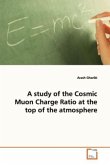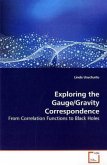Since its inception in 1981, inflation has
emerged as the dominant paradigm for describing the
physics of the early universe. While inflation has
matured theoretically over two decades, it has only
recently begun to be rigorously tested
observationally. Measurements of the cosmic
microwave background and large-scale structure
surveys have begun to unravel the mysteries
of the inflationary epoch with exquisite and
unprecedented accuracy. This work is a contribution
to the effort of reconstructing the physics of
inflation. This information is largely encoded in
the potential energy function of the inflaton, the
field that drives the inflationary expansion. With
little theoretical guidance as to the probable form
of this potential, reconstruction is a predominantly
data-driven endeavor. This work presents an
investigation and appraisal of the current
constraints that can be imposed on different
inflationary theories of the early universe.
emerged as the dominant paradigm for describing the
physics of the early universe. While inflation has
matured theoretically over two decades, it has only
recently begun to be rigorously tested
observationally. Measurements of the cosmic
microwave background and large-scale structure
surveys have begun to unravel the mysteries
of the inflationary epoch with exquisite and
unprecedented accuracy. This work is a contribution
to the effort of reconstructing the physics of
inflation. This information is largely encoded in
the potential energy function of the inflaton, the
field that drives the inflationary expansion. With
little theoretical guidance as to the probable form
of this potential, reconstruction is a predominantly
data-driven endeavor. This work presents an
investigation and appraisal of the current
constraints that can be imposed on different
inflationary theories of the early universe.








